Introduction
Event planning can be a complex and demanding task that requires careful organization and efficient management. Thankfully, there are numerous tools available to help event planners streamline their processes and ensure successful events. In this comprehensive guide, we will explore ten essential tools that every event planner should consider. While some of these tools focus specifically on event management, others offer features such as calendars, booking tools, floor planning, badge printing, and more, which can greatly facilitate the event planning process. Whether you're an experienced event planner or just starting in the industry, these tools will provide you with the necessary support to execute memorable events flawlessly.
1. MeetingHand

MeetingHand is undoubtedly one of the top event management tools in the industry. With its extensive range of features and user-friendly interface, it has become a favorite among event planners. From event registration and ticketing to abstract submission management and program scheduling, MeetingHand offers a comprehensive suite of tools to handle every aspect of event planning. Its powerful attendee management system allows you to efficiently track registrations, communicate with participants, and collect valuable feedback. Additionally, MeetingHand offers integrated payment gateways, customizable event websites, and robust analytics, making it an all-in-one solution for event planners. With MeetingHand, you can enjoy a range of solutions designed specifically for academic conference planners.
Here are just a few of the features MeetingHand provides:
- Auto-generated event website
- Registration management
- Abstract management
- Peer review
- Book of abstracts
- Event program
- Online payment gateways
- Invited speakers
- Automated and announcement emails
- Custom reporting, and more
2. Google Calendar

A reliable calendar tool is crucial for event planners to manage their schedules effectively. Google Calendar provides a user-friendly interface and seamless integration with other Google services. It allows you to create and share calendars, set reminders, and send event invitations. You can also sync your calendar across multiple devices, ensuring you stay organized and never miss an important deadline or meeting. By leveraging Google Calendar, you can easily coordinate with team members, clients, and vendors, ensuring everyone is on the same page regarding event timelines and availability.
Here are just a few of the features Google Calendar provides:
- Google Calendar allows users to create and edit events. Events have a set start time and stop time, with an option for an "All-day event".
- Users can enable a "Recurring" functionality with optional parameters for frequency.
- Users can add a color to an event for recognition or to distinguish the event from others.
- Events are viewable in different types of setups, including day, week, month, or schedule.
- Locations can be added for easy understanding of an event's place.
- Users can optionally set notifications, with options for type (email, mobile push notification) and time.
- Users can invite other people to events; for other Google Calendar users, the event becomes visible in their calendar, and for non-Google Calendar users, an email will have options for "Yes", "No", or "Maybe".
- Privacy settings allow the user to define the levels of public visibility of the entire calendar or individual events. Although the calendar defaults to showing users event times in their local time, users can specify a different time zone for an event.
- Users can enable or disable the visibility of special calendars, including a Birthdays calendar, which automatically retrieves dates of births from a user's Google contacts and displays the dates on a yearly basis, and a Holidays calendar, a country-specific calendar featuring dates of special occasions.
3. Acuity Scheduling

Efficient appointment and meeting scheduling are essential for event planners, especially when dealing with clients, vendors, and potential sponsors. Acuity Scheduling simplifies the process by providing a powerful booking tool that integrates seamlessly with your website or email. It allows you to set your availability, create custom appointment types, and automate reminders. With its user-friendly interface, clients can easily view your availability and book appointments without the need for back-and-forth communication. Acuity Scheduling also supports online payments, making it a convenient solution for collecting deposits or fees for consultation sessions or event bookings.
Here are just a few of the features Acuity Scheduling provides:
- Multi-Calendar Sync
- Automated Reminders
- Email and SMS Notifications
- Automatic Time Zone Adjustments
- Share via Social Media and Websites
- Intake Forms
- Activity Tracker
- Group and Event Scheduling
- Self-Booking
- Real-Time Calendar of Appointments
- Team Calendar
- iOS and Android Apps
4. Discord
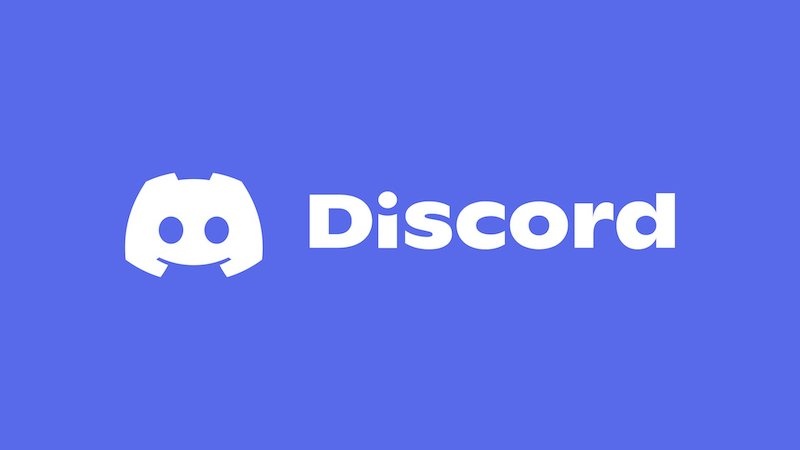
Discord is a popular communication platform designed for creating communities, connecting people, and facilitating real-time voice, video, and text communication. It was initially created for gamers to communicate with each other during gameplay but has since expanded to encompass a wide range of interests and communities beyond gaming.
Discord allows users to join servers, which are virtual spaces where people with similar interests can gather and interact. Within these servers, users can engage in text chats, voice chats, and video calls. It offers features such as private messaging, public and private channels, customizable server settings, and the ability to share various forms of media, including images, videos, and links.
Discord has gained popularity due to its user-friendly interface, reliable performance, and the ability to create and moderate communities for a wide range of purposes, such as social groups, professional communities, study groups, and more. It has become a go-to platform for many online communities to connect, collaborate, and engage in discussions.
Here are just a few of the features Discord provides:
- @mentions
- Alerts/Notifications
- Broadcast Messaging
- Bulk Send
- Chat/Messaging
- Collaboration Tools
- Commenting/Notes
- Discussions/Forums
- File Sharing
- Group Management
- Group Messaging
- Live Chat
- Mobile Access
- Multi-Channel Communication
- One-to-One Messaging
- Read Receipts
- Real-Time Notifications
- Real-Time Chat
- Reminders
- Screen Sharing
- Single Sign On
- Two-Way Audio & Video
- Video Conferencing
5. Miro
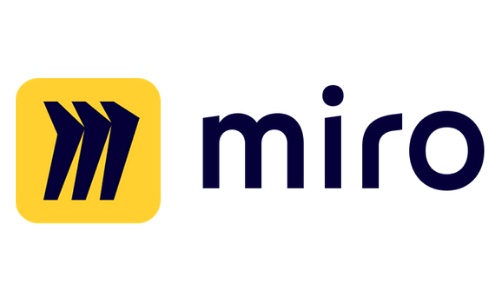
Miro (previously known as RealtimeBoard) brands itself as a digital whiteboard that makes it easy to collaborate with others. The software allows you to create notes and designs, move things around, and communicate through embedded video calls or online chats. The tool also comes with a series of pre-built templates that can inspire or serve as a starting place for your own project work. We like to use the online whiteboarding tool and apply Miro when leading real-time remote design thinking workshops.
Some common uses of Miro include:
- Creating a list of ideas or topics to focus on for an important project
- Developing a user story or customer journey map
- Wireframing a new product concept or idea
- Laying out a roadmap or strategy for an innovation workshop or program
- Running a more engaging or innovative meeting for your team in an Agile culture
6. Asana
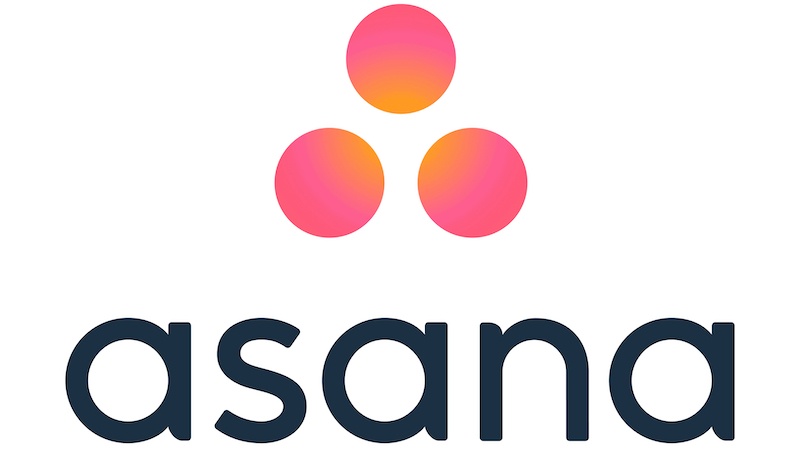
Asana is a popular project management and planning tool that helps teams organize, track, and manage their work effectively. It provides a centralized platform for team collaboration, task management, and project tracking, allowing users to streamline their workflows and stay organized.
Key features of Asana include:
- Task Management: Asana allows users to create tasks, assign them to team members, set due dates, and track their progress. Tasks can be organized into projects and subtasks for better organization and hierarchy.
- Project Planning: Asana provides project planning capabilities, enabling users to create project timelines, set dependencies between tasks, and visualize project progress. This helps teams stay on track and meet deadlines.
- Collaboration and Communication: Asana fosters collaboration through features such as team conversations, comments, and file attachments. Team members can communicate and share updates directly within tasks and projects, reducing the need for separate communication channels.
- Kanban Boards and Calendars: Asana offers Kanban boards that allow teams to visualize their tasks and workflows using drag-and-drop functionality. It also provides calendar views for scheduling and managing tasks based on dates.
- Automation: Asana offers automation features to streamline repetitive tasks and workflows. Users can create rules and trigger to automate actions, such as assigning tasks, sending notifications, or updating fields based on specific criteria.
- Integration and Customization: Asana integrates with various third-party applications, including communication tools like Slack, file storage services like Google Drive, and time-tracking tools. It also allows users to customize project views, create custom fields, and build custom workflows to align with specific team needs.
- Reporting and Analytics: Asana provides reporting and analytics features to track team and project performance. Users can generate progress reports, visualize project metrics, and gain insights into resource allocation and workload distribution.
7. Trello
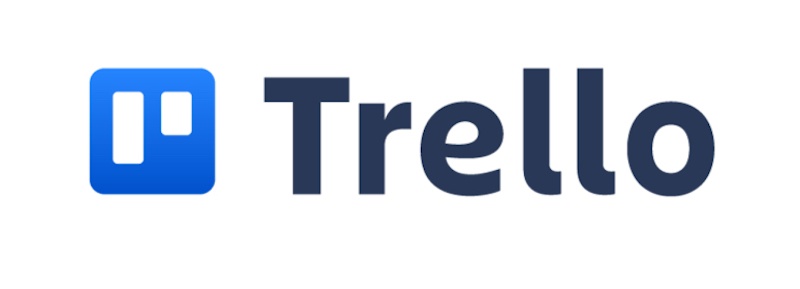
Trello is a versatile project management tool that can greatly benefit event planners. Its visual boards, cards, and lists allow you to organize and prioritize tasks effectively. You can create boards for different events, add team members, assign tasks, set due dates, and track progress in real-time. Trello also enables seamless collaboration, with features like comments, attachments, and activity logs. By using Trello, you can ensure efficient communication, enhance team coordination, and stay on top of all the moving parts involved in event planning.
Here are some of the key features of Trello:
- Boards: Create multiple boards for different projects, workflows, or other needs. Keep all related information organized in a single location.
- Cards: Build processes, follow progress, and manage all aspects of a project. Foster collaboration and organization within teams.
- Task Management: Represent tasks on each card and move them through the workflow. Set up and manage task dependencies by creating checklists and linking associated cards to one another.
- Templates: Create real-world boards from the inspiration section for teams. Use pre-built or custom templates to create boards, lists, or cards.
- Power-Ups: Integrate it with apps like Slack, Zapier, Google Drive, MailChimp, Salesforce, Dropbox, SurveyMonkey, and Zendesk to complete workflows. Choose from over 130 modules for file management, reporting, automation, and developer tools.
- Mobile Apps: Access it through iOS and Android devices, including smartphones, iPads, smart watches, and Kindle Fire tablets.
8. Canva
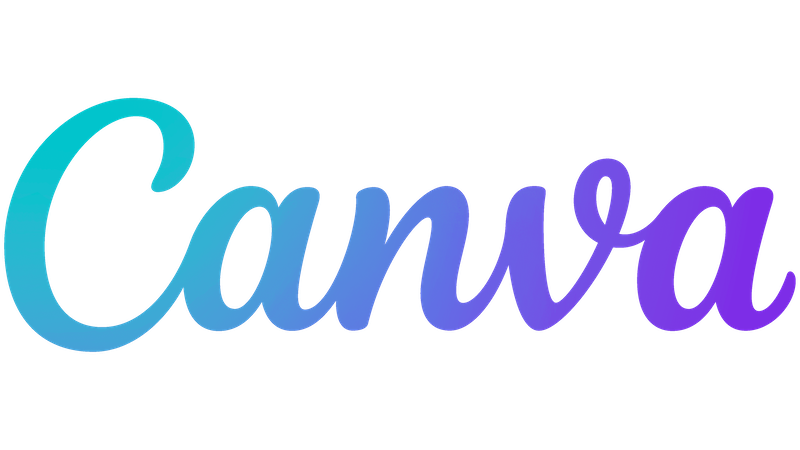
Canva is a popular graphic design tool that empowers event planners to create stunning visuals without the need for extensive design skills. With its user-friendly interface and a vast library of templates, you can easily design eye-catching event posters, social media graphics, invitations, and more. Canva offers a range of customization options, including fonts, colors, and images, allowing you to incorporate your event's branding effortlessly. This tool saves time and resources while ensuring professional and visually appealing designs to attract attendees and promote your events effectively.
Here are some of the prominent features of Canva −
- Create several types of content − From compelling social media posts to infographics and resumes, Canva can help you design anything you need. You can also create your designs from scratch.
- Drag and drop feature − The drag and drop feature of Canva makes it user−friendly. You can use templates and photos in your design in just a few clicks.
- Templates − Canva has a library of over 50,000 templates that you can choose, edit, and customize as per your needs. Also, new templates are regularly added to the existing library.
- Photo editing − You can do more than basic cropping and texturing photos in Canva. With its beginner-friendly features, you can blur your photos, add text, create collages and photo grids that will produce an engrossing impression.
- Stocks images, icons, and fonts − Canva has a library of free stock photos, icons, and fonts that you can use to create engaging graphic designs. You can also upload your photos and use them in your design.
9. Mailchimp
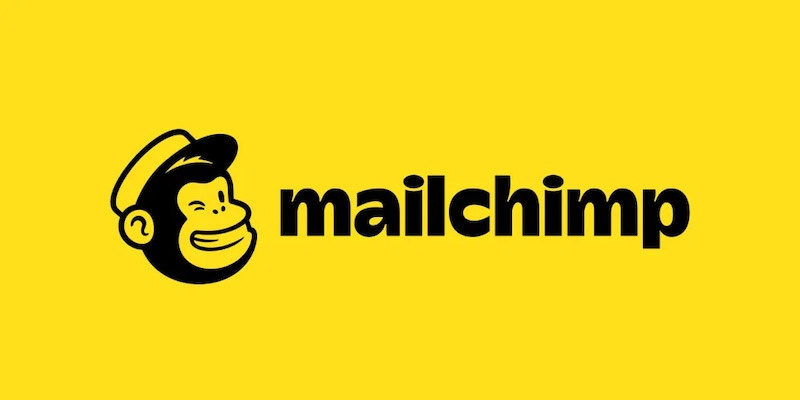
Email marketing is an essential aspect of event promotion, and Mailchimp is a reliable tool for managing your email campaigns. With its intuitive drag-and-drop editor, you can create engaging newsletters, event updates, and personalized invitations. Mailchimp also provides segmentation and automation features, allowing you to target specific groups of attendees with tailored content. The platform's analytics and reporting features provide valuable insights into the performance of your email campaigns, helping you refine your strategies for better engagement and conversion rates.
Here are the key features of Mailchimp:
- Email Campaign Creation: Mailchimp provides a user-friendly drag-and-drop email builder that allows users to create professional-looking email campaigns without coding knowledge. It offers a variety of customizable email templates to suit different purposes and industries.
- Audience Segmentation: Users can segment their email lists based on various criteria, such as demographics, interests, or purchase history. This segmentation allows for targeted and personalized email campaigns, resulting in higher engagement and conversions.
- Automation: Mailchimp offers automation capabilities, enabling users to set up automated email sequences triggered by specific events or actions. This includes welcome emails, abandoned cart reminders, birthday greetings, and more. Automation helps businesses nurture leads and engage with their audience more effectively.
- A/B Testing: Mailchimp allows users to conduct A/B tests to optimize their email campaigns. Users can test different subject lines, email content, or send times to determine the most effective approach and improve campaign performance.
- Email Scheduling and Delivery: Users can schedule their email campaigns to be sent at a specific date and time. Mailchimp handles the delivery process, ensuring that emails reach the recipients' inboxes, and provides advanced tracking and reporting on delivery rates.
- Analytics and Reporting: Mailchimp provides comprehensive analytics and reporting features to track the performance of email campaigns. Users can monitor open rates, click-through rates, conversion rates, and other key metrics to measure the success of their campaigns and make data-driven decisions for future improvements.
- Integration and Personalization: Mailchimp integrates with various third-party platforms and services, including e-commerce platforms, CRM systems, and social media platforms. It enables personalization by allowing users to dynamically insert customer data, such as names or purchase history, into their emails for a more personalized experience.
- Landing Page Builder: Mailchimp includes a landing page builder that allows users to create customized landing pages for their email campaigns. These landing pages can help drive conversions and capture leads more effectively.
10. Slack
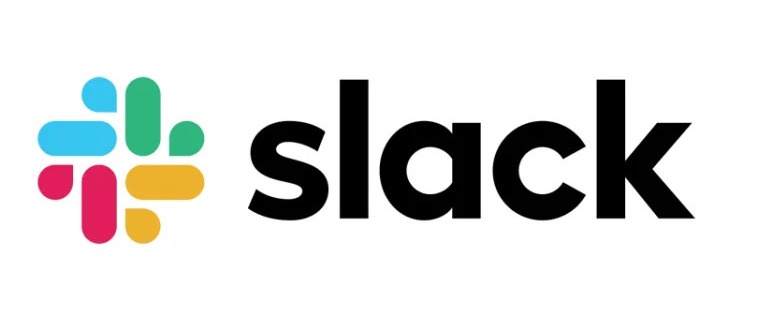
Effective communication is crucial for successful event planning, and Slack is a powerful team collaboration tool that facilitates seamless communication among event planners, clients, and vendors. With Slack, you can create channels for different event projects, enabling focused discussions and sharing of files and documents. The platform also integrates with various tools and services, allowing you to centralize your event planning efforts in one place. Slack's real-time messaging, voice, and video calls ensure quick decision-making, efficient problem-solving, and effective coordination throughout the event planning process.
Here are the key features of Slack:
- Email Campaign Creation: Mailchimp provides a user-friendly drag-and-drop email builder that allows users to create professional-looking email campaigns without coding knowledge. It offers a variety of customizable email templates to suit different purposes and industries.
- Audience Segmentation: Users can segment their email lists based on various criteria, such as demographics, interests, or purchase history. This segmentation allows for targeted and personalized email campaigns, resulting in higher engagement and conversions.
- Automation: Mailchimp offers automation capabilities, enabling users to set up automated email sequences triggered by specific events or actions. This includes welcome emails, abandoned cart reminders, birthday greetings, and more. Automation helps businesses nurture leads and engage with their audience more effectively.
- A/B Testing: Mailchimp allows users to conduct A/B tests to optimize their email campaigns. Users can test different subject lines, email content, or send times to determine the most effective approach and improve campaign performance.
- Email Scheduling and Delivery: Users can schedule their email campaigns to be sent at a specific date and time. Mailchimp handles the delivery process, ensuring that emails reach the recipients' inboxes, and provides advanced tracking and reporting on delivery rates.
- Analytics and Reporting: Mailchimp provides comprehensive analytics and reporting features to track the performance of email campaigns. Users can monitor open rates, click-through rates, conversion rates, and other key metrics to measure the success of their campaigns and make data-driven decisions for future improvements.
- Integration and Personalization: Mailchimp integrates with various third-party platforms and services, including e-commerce platforms, CRM systems, and social media platforms. It enables personalization by allowing users to dynamically insert customer data, such as names or purchase history, into their emails for a more personalized experience.
- Landing Page Builder: Mailchimp includes a landing page builder that allows users to create customized landing pages for their email campaigns. These landing pages can help drive conversions and capture leads more effectively.
Conclusion
Event planning can be a challenging endeavor, but with the right tools, you can simplify and streamline the process. In this blog, we have explored ten essential tools that every event planner needs to execute successful events. From comprehensive event management platforms like MeetingHand to versatile tools like Google Calendar, Acuity Scheduling, AllSeated, badge printing software, Eventbrite, Trello, Canva, Mailchimp, and Slack, these tools cover various aspects of event planning, including registration, scheduling, floor planning, design, communication, and promotion. By incorporating these tools into your event planning workflow, you can enhance efficiency, improve collaboration, and deliver exceptional experiences for both clients and attendees. Embrace the power of technology and leverage these tools to take your event planning skills to new heights.
____
If you enjoyed this article, please do not forget to share it with your friends.
As a comprehensive and user-friendly online event management software, MeetingHand helps academic event planners to organize any type of event. If you need to know more about MeetingHand, you can attend a private event demo with us. If you wish to attend a demo, please click the link below.
BOOK AN ONLINE DEMO WITH MEETINGHAND.!
We'll be more than happy to meet you online..
